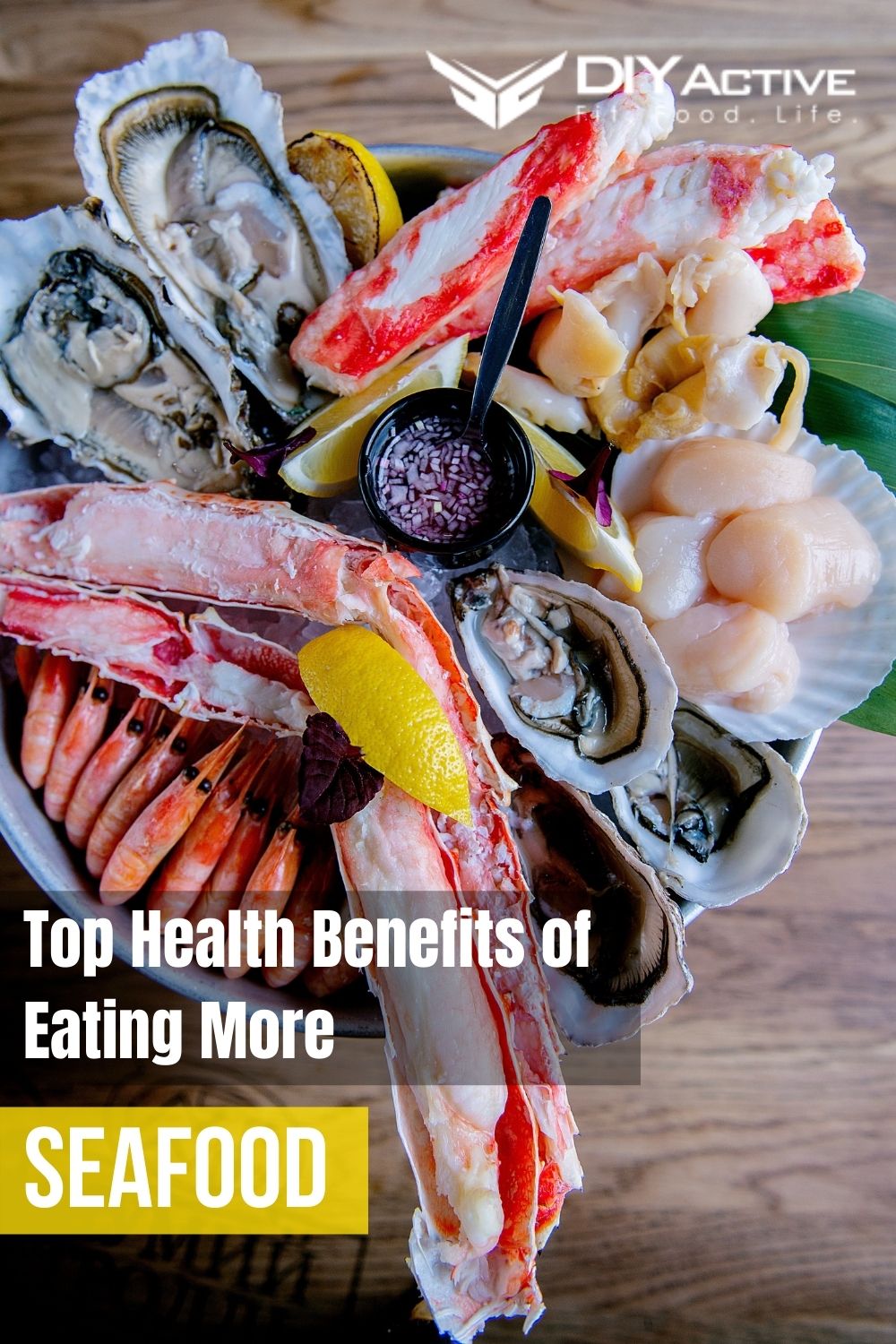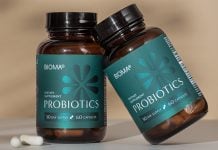
Health Benefits of Eating More Seafood
Did you know that countries with higher seafood consumption are healthier on average? There are a lot of factors going into that, of course, but it doesn’t hurt that fish are chock-full of nutrients we need in our everyday life.
Benefits of Eating More Seafood
If you’re on the fence about eating more fish, please consider the five health benefits we have prepared for you below.
A picture of a dinner plate with crab, fish, shrimp, salad, and French fries.
1. Omega-3 Fatty Acids
When people think of the health benefits of seafood, odds are that Omega-3 and fatty acids are the first things that come to mind. There’s a huge market for fish oil pills with that exact advertisement, and for good reason.
Omega-3 is linked with heart health, skin health, eye health, cognitive function, cancer prevention, and a lower risk of chronic diseases.
But what sounds more appealing: remembering to take a pill every day, or enjoying a vast selection of delicious recipes? Even if you don’t live where the fish is fresh, you can still get Alaskan salmon delivered to your doorstep, so you don’t miss out on any essential vitamins.
2. Vitamin B12
A lack of Vitamin B12 can cause anemia, nerve damage, gut problems, and other issues. Vitamin B12 isn’t found in plants, so the only natural sources of this are in meat, fish, and dairy.
Of these options, fish is widely considered to be the healthiest and most accessible, since it is relatively low in fat and calories, fits into many otherwise restrictive diets, and can be harvested by anyone with the right tools, not just farmers or wealthy companies.
Mollusks and clams have the highest amount of Vitamin B12 per weight, and are deliciously steamed, baked, or fried.
3. High in Protein, Low in Calories
It’s no secret that many people today tend to eat too many calories, and many health-focused diets recommend counting your calories to make sure you don’t overeat.
Protein is a vital nutrient for everyone, and fish meat, in particular, contains a lot of protein with a relatively low-calorie count. This means you can eat more of it, and feel fuller after your meal without having to overindulge.
4. Vitamin D
Seafood especially fish was found to be a good source of Vitamin D, another vital nutrient for our health. Proper vitamin D intake is important for building and maintaining our bone structure, and also helps with keeping our muscles and joints in good shape.
We get most of our vitamin D from the sun, but it’s more common than ever to spend most of our day inside, under artificial lighting.
Not having enough vitamin D is linked to fatigue, muscle weakness, and overall poor health. If your doctor tells you that you have a deficiency or you aren’t able to get outside enough to let your skin absorb sunlight, then you should consider eating more seafood to make up the difference.
5. Antioxidants
Found abundantly in fish and shrimp, antioxidants are thought to protect your body’s cells from cancer-causing agents and promote heart health. Nutrients that act as antioxidants include vitamin C, vitamin E, selenium, and carotenoids.
Astaxanthin, a carotenoid, is mostly found in pink-colored seafood, such as shrimp, lobster, crab, and certain fish, such as salmon and trout. This antioxidant is particularly important for fighting inflammation, so it might be worth it to add crustaceans to your meals if you don’t already.
Okay, You’ve Convinced Me. Now What?
There are tons of delicious recipes available for all kinds of seafood, made every way you can think of: baked, boiled, steamed, fried, stuffed, and more. Don’t enjoy the taste of fish? There are plenty of milder, less “fishy” varieties, or you can go for crab, shrimp, squid…whatever strikes your fancy.
Eating more seafood is an easy step to building a healthier diet, and your health begins with you.
Photo by Anna Tis from Pexels
Photo by Terje Sollie from Pexels



